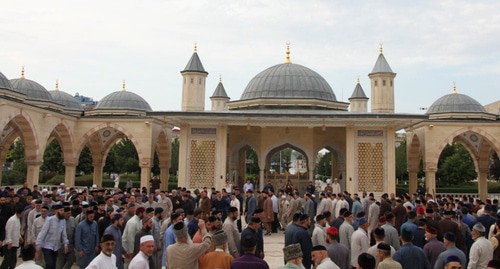Orientalists tell about Kunta-haji's role in preserving Islam in the Caucasus
The mass events in honour of Kunta-haji Kishiev's birthday were organized in Chechnya through the use of administrative resources, residents of the republic report. The ideas of Kunta-haji had helped residents of the Caucasus not to abandon their faith during the years of repressions and atheistic propaganda, Islamic scholars have pointed out.
Sheikh Kunta-haji Kishiev is one of the most revered saints in Chechnya. Ramzan Kadyrov and most of the officials and religious leaders of Chechnya are the followers of Kunta-haji.
Kunta-haji Kishiev is an Islamic mystic and preacher of the Caucasian War times. He is called "Chechen Gandhi", as he advocated the non-resistance to evil by violence.
On July 11, on the occasion of the 207th Kunta-haji's birthday, the mosques of Chechnya organized readings of the Koran, the republic's Muftiate has informed. Large-scale religious events took place in Shali, where many Kunta-haji's followers, who perished in clashes with the tsarist troops in 1864, are buried.
"All communities were to send as many people as possible to such events. Participation therein was mandatory," said Khasan, a local theologian.
Efim Rezvan, an Islamic scholar, believes that the personality of Kunta-haji and his teachings helped Islam to survive in the Caucasus, both in the tsarist and Soviet times.
Makka Albogachieva, an ethnographer, has noted that Kunta-haji's followers had always occupied an active civil position. According to her story, the teachings of Kunta-haji contributed to the unification of different people, and not only on the tribal (clannish), but also on the spiritual basis.
This article was originally published on the Russian page of 24/7 Internet agency ‘Caucasian Knot’ on July 12, 2019 at 11:14 pm MSK. To access the full text of the article, click here.
Source: CK correspondents

